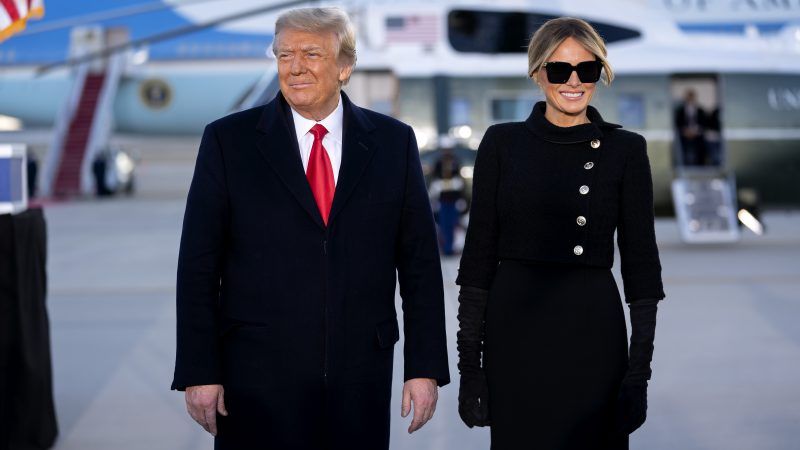Presidential Mercy Is a Woefully Inadequate Remedy for Injustice
The controversy over Trump’s pardons and commutations highlights longstanding problems with clemency.

When Donald Trump pardoned Steve Bannon last week, the outgoing president blocked the former White House strategist's prosecution for bilking donors to an organization that claimed to be raising money for a wall along the border with Mexico. When Trump granted a commutation to Craig Cesal, by contrast, he freed a man who had already served 17 years of what was originally a life sentence for repairing trucks that were used to transport marijuana.
As those examples reflect, Trump's acts of clemency mixed favors to cronies with relief for genuinely deserving federal prisoners hit with grossly disproportionate penalties. The controversy over his choices highlights longstanding problems with a clemency system that is a woefully inadequate remedy for the injustices routinely inflicted by rigid and draconian federal sentences.
Trump's final batch of 70 commutations brought his total to 94, which included dozens of nonviolent drug offenders, 18 of whom had received life sentences. He shortened more sentences than all but one of his eight most recent predecessors.
The one exception is Barack Obama, who granted a record 1,715 commutations, nearly all in his second term and the vast majority during his last year in office. Even Obama, however, approved just 5 percent of petitions for commutations, five times Trump's rate (which was in turn 10 times George W. Bush's rate) but still pretty slim odds for people languishing behind bars, often because of conduct that violated no one's rights.
On Trump's last day in office, The New York Times complained that he had "largely bypassed a rigorous Justice Department process for vetting and approving" pardons and commutations. Yet that process, as the Times noted two days later, "has left thousands of petitions waiting for review with a small team of lawyers unable to keep up."
Margaret Colgate Love, who served as the Justice Department's pardon attorney from 1990 to 1997, says she was "continually frustrated by the hostility of the prosecutors to whom I reported, who evidently feared that pardon would undo their hard work." Those prosecutors "were unreceptive to suggestions that pardon could tell good news about their work by showcasing rehabilitation and redemption."
As a result, Love says, "the Justice Department sent few favorable pardon recommendations to the White House." While some of the system's critics think the White House should cut the Justice Department out of the process (as Trump effectively did) to avoid this conflict of interest, Love argues that a better approach would be for Congress to let judges or executive agencies perform some of the clemency system's functions.
People often seek pardons, for example, to recover their Second Amendment rights, something that Love suggests could be accomplished "by application to an administrative agency or a court." She notes that the FIRST STEP Act, a 2018 law that Trump supported, authorized judges to reduce prisoners' sentences for "extraordinary and compelling reasons," a reform that could be expanded to cover many of the people who are now desperately hoping for commutations.
President Joe Biden has promised that he will "broadly use his clemency power for certain non-violent and drug crimes." He should do that throughout his administration, instead of waiting until he is nearly out of office.
Biden also favors abolishing the mandatory minimum sentences that he championed for decades as a senator. Such reforms, especially if they are retroactive, would have a much bigger impact than liberal use of clemency: During the first year after the FIRST STEP Act took effect, its relatively modest changes resulted in shorter sentences for more than 7,000 people.
That amounts to less than 5 percent of federal prisoners, nearly half of whom are serving time for drug offenses. But the law still helped four times as many prisoners in one year than even Obama managed through commutations in eight.
If Biden truly wants to atone for his long history as a hardline drug warrior, he cannot let sentencing reform sink to the bottom of his priorities.
© Copyright 2021 by Creators Syndicate Inc.

Show Comments (32)